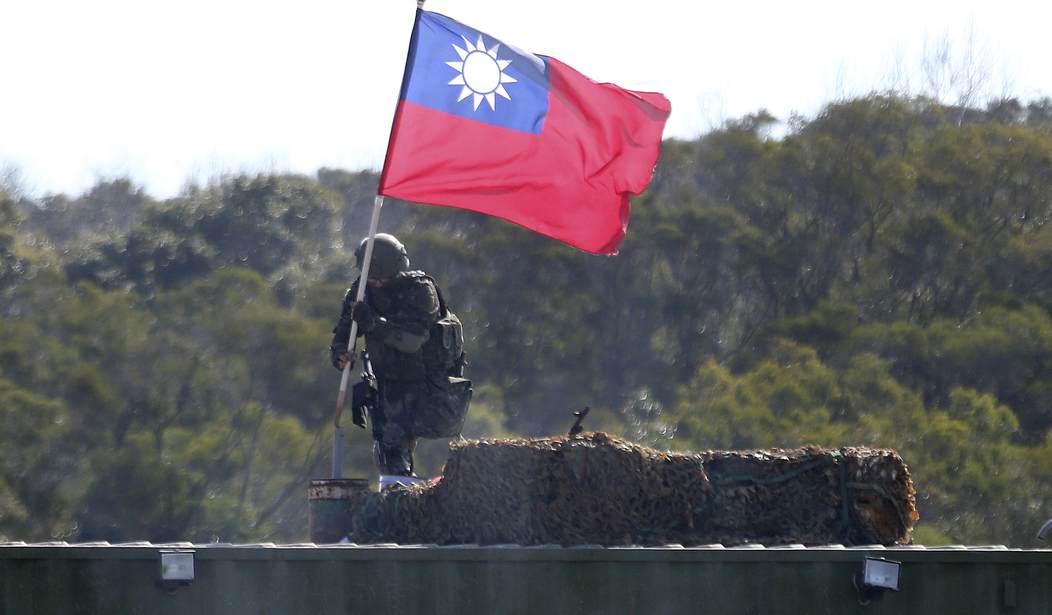I suppose I can understand why Rasmussen Reports decided to run this poll, particularly given how the situation in the Strait of Taiwan is so frequently in the news. But the results came as quite a shock to me. The polling company asked respondents whether or not they want the United States government to formally recognize Taiwan as a sovereign nation independent of China. A strong majority was in favor of the idea, while less than one in five opposed it. It’s easy to understand how people might look at Taiwan with a sympathetic eye considering the threat they face from the Chinese Communist Party, but we’re talking about an extremely complex situation with a lot of moving parts to be considered.
Despite disavowals from Secretary of State Anthony Blinken, American voters overwhelmingly want their government to recognize Taiwan’s independence from Communist China.
The latest Rasmussen Reports national telephone and online survey finds that 64% of Likely U.S. Voters believe the United States should officially recognize Taiwan as an independent nation, separate from China. Only 14% oppose U.S. recognition of Taiwan’s independence, while another 22% are not sure.
The numbers break down to a 64/14 split, which is a fairly unambiguous result. The 22% who said they were “unsure” about the proposal might be somewhat informative, however. Whether you’re talking about the best interests of Ameria or of the Taiwanese, it’s a complicated situation.
The case for independence is easy enough to make. Taiwan has been a vocal ally of America and operates as a largely free democracy. Few in the West would want to see them fully under the thumb of the communists. Also, as Karl Salzmann points out at the Free Beacon, a strong, coherent policy from Washington has been missing recently and that might embolden Beijing to move forward with a “reunification” invasion.
Republicans and foreign policy experts last week told the Washington Free Beacon that Blinken’s comments show the Biden administration’s weakness on Taiwan, potentially paving the way for a Chinese invasion. Pentagon war games have indicated that, if China does invade, “the United States is unprepared for a ‘horrifically bloody’ war” with the Communist country, the Free Beacon reported.
I’ll be the first to admit that the policy of the United States regarding Taiwan is a mess and it has been since before some of our readers were likely even born. It’s a policy that was crafted out of fear of starting a war with China while not wanting to encourage the removal of Taiwan’s independent government. We even called it the “One China” policy, with a wink and a nod, telling Beijing essentially, ‘Yes, Taiwan is part of your country. But it’s a part you can’t rule.’
Joe Biden hasn’t helped matters any by repeatedly saying that we would fight on Taiwan’s behalf if China invades. Then his aides have to rush out to “clarify” that he meant precisely the opposite of what he just said. But that brings us back to the reality pointed out in the Free Beacon piece quoted above.
Pay careful attention to the comment about the “horrifically bloody war” that would certainly unfold if China crosses the straight. Our own Pentagon says that we are, at best, “unprepared” for what would come next. Even if we are “only” supplying Taiwan’s military to help them fight, we’re already running short of arms and equipment to send to Ukraine. We certainly won’t be able to supply Taiwan for more than a brief period of time. And nobody expects the fighting to be brief.
The alternative, where we engage the Chinese military directly, is probably even worse. We would be fighting a formidable military force far from our own bases and supply depots. None of our allies have indicated that they would join us in battle if we take on China. And none of that covers the uncomfortable fact that we’re talking about a nuclear superpower on the other side of the strait. This could absolutely turn into world war 3.
With all that in mind, we probably shouldn’t rush into any official recognition of Taiwan’s independence without first establishing a broad, global consensus in favor of the idea. Doing otherwise simply seems reckless.








Join the conversation as a VIP Member